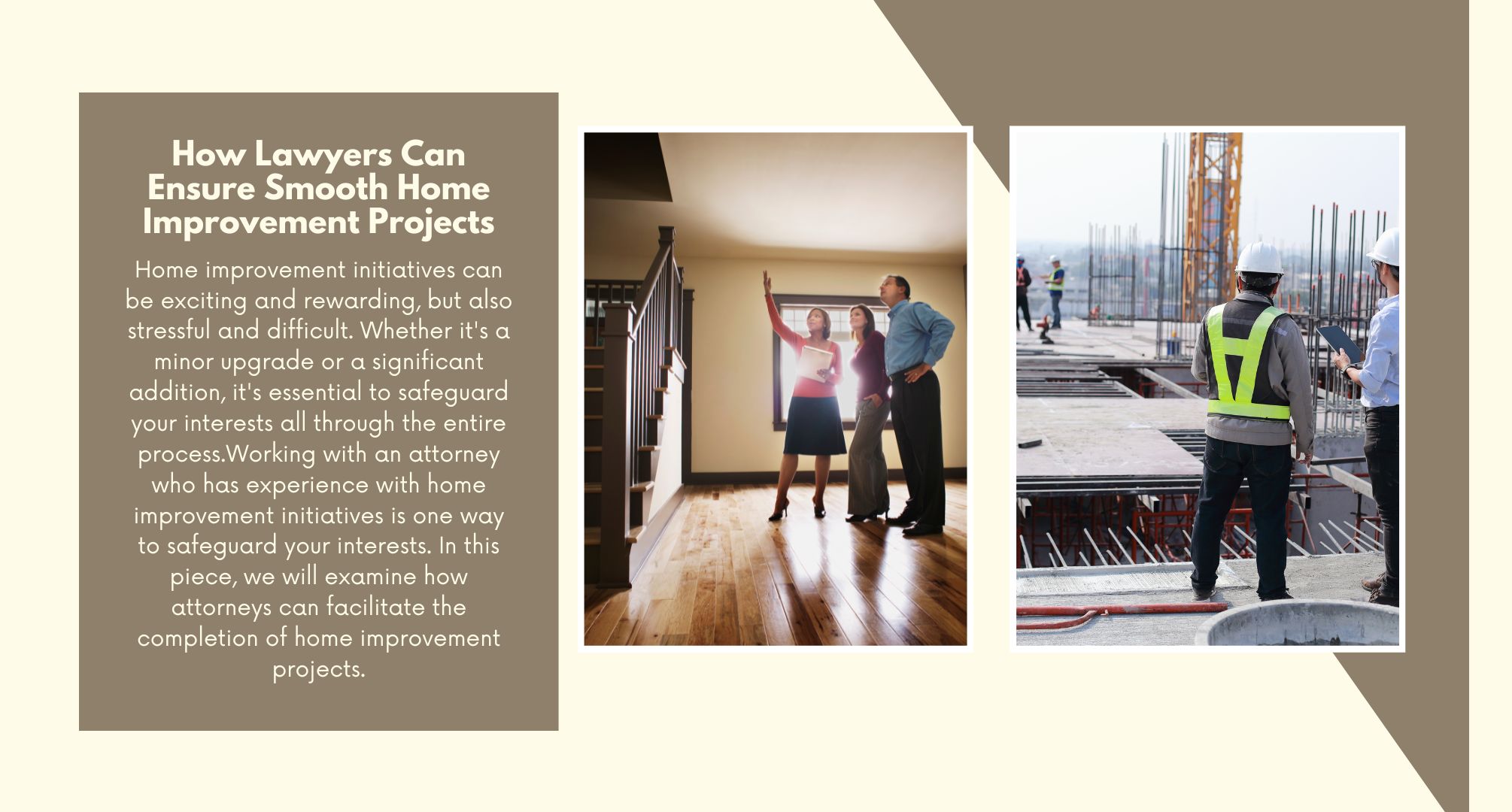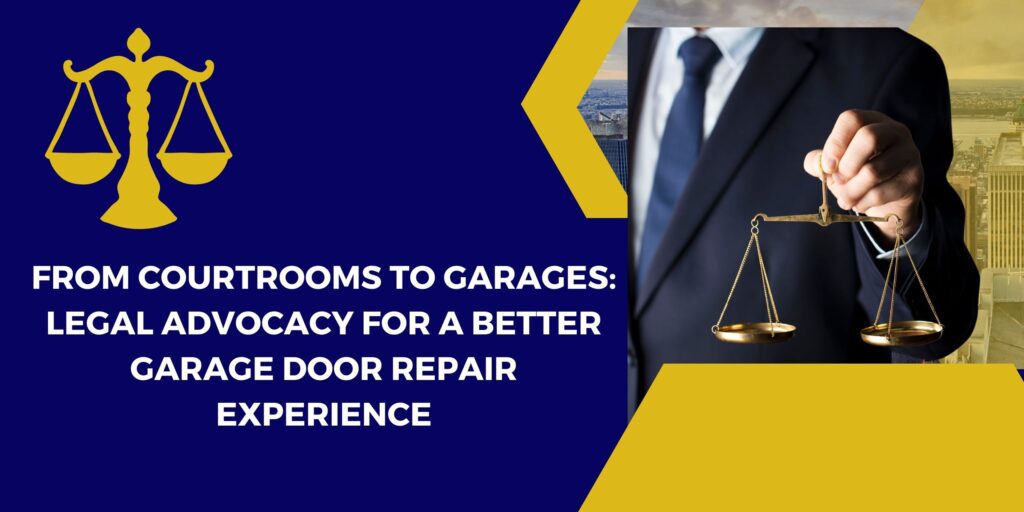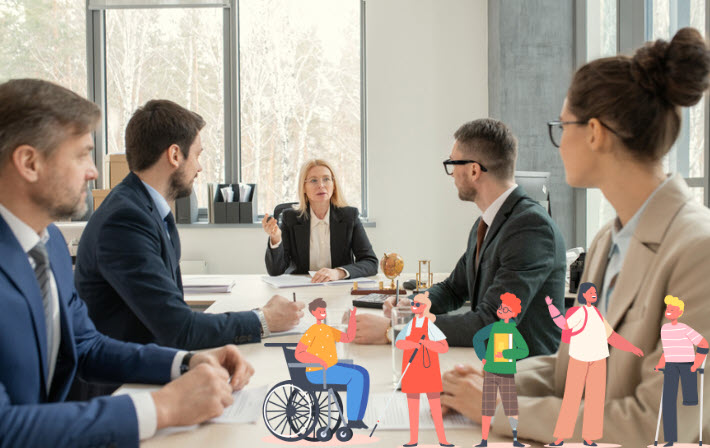WHAT WE DO...
We offer a variety of services to our clients including
Accident
Helps their customers in many ways, including scheduling doctor's visits, talking to insurers, and settling claims.Employment Law
To guarantee that every worker receives equal treatment and courtesy from management.
Social Security Disability Benefits
Aid in filling out forms, locating relevant information, and preparing appeals, if required.
Divorce
Help you get the most out of your divorce settlement and avoid making any costly errors.Child Support
aid parents in securing child support payments that are fair and reasonable given their income and the requirements of their child.
Discrimination or Unlawful Debt Collections.
empower victims of discrimination by educating them on their legal choices and helping them take legal action against those responsible.
WHAT THEY SAY...
What are our clients are saying about us?
The lawyers at Dixie and Mauzy did a fantastic job representing me in court. They cared about me and my issues and kept me updated the whole time. They negotiated a deal that was better than I had hoped for. When people ask me who they should hire as their lawyers, I always tell them they should hire them.
The lawyers at Dixie and Mauzy are seasoned pros who also have hearts of gold. They put in the effort to learn every nuance of my case and fought tooth and nail for the best result. They care deeply about each and every one of their customers. If anyone needs an attorney, I'll be sending them their way.
A acquaintance recommended Dixie and Mauzy attorneys to me, and I couldn't be more pleased with the work they did for me. Throughout it all, they were accessible, open, and sympathetic. They helped me get my law problem fixed quickly and affordably. I highly suggest Dixie and Mauzy to anyone seeking legal counsel.
Trustworthy counsel for all your legal concerns
Dedicated to Justice and Fairness
Protecting Your Rights in the Workplace: Understanding Employment Law
Many of us spend the majority of our waking hours at work; as such, it is crucial that we know and exercise our legal rights and safeguards there. Employment law, which governs the relationships between employers and workers in the workplace, is a dynamic and intricate field of study. Knowing your rights and how to enforce them under the law is essential for success in the job.
In the workplace, avoiding prejudice and harassment is a top priority, which is why these issues are addressed by the law. Race, gender, age, disability, sexual orientation, and religious affiliation are just some of the identities that can be used to justify prejudice. Employers are barred from treating workers unfairly due to these protected traits, and workers who feel they have been treated unfairly have the right to pursue legal action.

The legislation prohibits any form of discrimination in the workplace, including harassment. Unwanted sexual advances, offensive comments, or physical touching are all examples of harassment that can create a hostile work atmosphere and get in the way of an employee’s performance. Workers have the right to report harassment and pursue legal action if required, and employers have the duty to ensure a harassment-free workplace.
Employment law regulates problems like hiring, promotion, termination, and severance, in addition to stopping discrimination and harassment. A company’s hiring and promotion practices must adhere to specific rules and regulations, and workers have the legal right to appeal what they see as unfair or discriminatory choices from their employers.
Employees who have been wrongfully terminated or who are otherwise eligible for severance compensation are safeguarded by various provisions of employment law. Employees have a right to severance compensation if they have been laid off or their position has been eliminated, and employers are required to give notice before termination in many situations.
A further vital area of job law is that pertaining to wages and hours worked. Workers have a right to be paid a living wage for their efforts, and businesses have a responsibility to pay them at least the minimum rate and overtime if applicable. Workers also have the legal right to rest and eat intervals during work hours, and to be compensated for all of their time worked.

Keeping up with the constantly evolving body of law is a significant obstacle for any employment law practitioner. The rights and responsibilities of both employers and employees are subject to change as a result of new legislation and rules. Both employers and employees need to be aware of the latest developments in employment law in order to safeguard their rights and pursue recourse in court when required.
A knowledgeable employment law counsel should be consulted if you suspect a violation of your rights in the workplace. An attorney’s job is to make sure you know what you’re entitled to under the law and help you exercise those rights in the most advantageous way possible. They can aid you in compiling proof, submitting formal complaints, and initiating legal proceedings.
To sum up, knowing your rights and how to enforce them in the workplace requires a knowledge of employment law. Seek the counsel of an experienced employment law attorney if you have any queries or concerns about your rights as an employee. An attorney’s help is necessary to guarantee that your rights are upheld in the workplace and that you receive just treatment.
Protecting Your Interests: How Lawyers Can Ensure Smooth Home Improvement Projects
Home improvement initiatives can be exciting and rewarding, but also stressful and difficult. Whether it’s a minor upgrade or a significant addition, it’s essential to safeguard your interests all through the entire process. Working with an attorney who has experience with home improvement initiatives is one way to safeguard your interests. In this piece, we will examine how attorneys can facilitate the completion of home improvement projects.
Initiation of a Project
The pre-project part is crucial for homeowners who are conducting research and employing contractors. It is essential to employ a skilled and experienced contractor with a good reputation who can complete the task on time and within budget. A lawyer may examine the contract prior to its execution to safeguard the homeowner’s interests. In addition, the attorney can advise the householder on legal issues that may arise in the pre-project phase, such as permits and zoning regulations.
Permits and zoning regulations vary by municipality, making it challenging for homeowners to understand the process on their own. A lawyer can assist householders in understanding the requirements and ensuring that all approvals and permits are obtained prior to the start of construction. This can prevent delays and penalties in the future.
Contract Analysis
A lawyer’s review of the contract among the homeowner and the contractor is one of his or her most essential pre-project responsibilities. The attorney can ensure that the contract is equitable and that the homeowner’s interests are protected. Additionally, the attorney can advise the homeowner on any clauses that are unfair or ambiguous.
A lawyer will examine the following aspects of a home improvement contract:
Scope of Work: The contract of employment should specify the precise scope of the work to be performed by the contractor. This should include an in-depth account of the work to be performed, as well as a list of any necessary materials.
Contract payment terms should include the total cost of the project, the payment schedule, and any penalties for late payments.
Date of Completion: The contract ought to state a date of completion for the endeavor. This deadline should be reasonable and should account for potential delays.
Change Orders: The procedure for change orders should be outlined in the contract. A change order is an agreement in writing between a householder and a contractor outlining any modifications to the original contract. The attorney can advise the individual on the procedure for change orders and ensure that the householder is not unjustly charged for project modifications.
Construction Phase
In the project phase of a home improvement endeavor, work is performed. This is when potential issues, such as unforeseen costs or disputes with the contractor, can arise. A lawyer can assist homeowners in navigating these issues and ensuring that the project finishes according to the terms of the contract.
Arbitration and Conflict Resolution
In the event that a dispute develops between the householder and the contractor, an attorney can assist with mediation and resolution. If necessary, this may involve negotiating a settlement or submitting a lawsuit. A lawyer can also recommend the best course to take in the event of a dispute to the proprietor.
Clarity Regarding Payment Terms
It is essential for householders to fully comprehend the terms of payment and deadlines. This can prevent miscommunications and disagreements between the householder and contractor. A lawyer can ensure that payment terms are explicitly outlined in the contract of sale and can advise the homeowner on how to make payments most effectively.
After-Project Phase
The post-project phase occurs when the project has been concluded and the homeowner is enjoying his or her newly renovated residence. Nonetheless, prospective legal issues may still arise during this phase.
Lien Issues
A lien is a potential issue that may arise after the completion of a home improvement endeavor. A lien is a legal claim toward the property that a supplier or contractor may submit if they are not paid. By ensuring that all payments to the contractor and wholesalers are made in line with the contract, homeowners can avoid liens. However, if a lien is lodged, a lawyer can assist the homeowner in resolving the issue and preventing legal action against the owner of the property.
Warranty Conflicts
A warranty dispute is another potential issue which can arise after the completion of a home improvement endeavor. The homeowner may have the right to submit a warranty claim if the contractor’s work is defective or does not conform to the contract’s specifications. A lawyer can help a householder file a warranty claim and ensure that the contractor is held accountable for any repairs or replacements that are required.
Documentation
For future reference, it is essential for homeowners to keep records of all aspects of the undertaking. This includes maintaining copies of all contracts, change orders, and material and payment receipts. A lawyer can advise householders on what documentation is required and assist in obtaining and organizing all required documentation.
Conclusion
In conclusion, remodeling tasks can be complex and difficult, but with the assistance of an attorney, householders can safeguard their interests throughout the process. A lawyer can assist residents in navigating legal problems and ensuring that the construction endeavor is concluded successfully from the pre-project to post-project phases. Whether it’s examining contracts, mediating disputes, or settling post-project issues, an attorney with knowledge of home improvement projects can be of great assistance. By collaborating with an attorney, homeowners can realize their ideal home without the pressure and legal complications that can accompany a home remodeling project.
The Legal Side of Garage Door Repair: How Lawyers are Impacting the Industry’s Regulations
The safety and efficiency of a crucial component of many homes and companies are guaranteed by the garage door repair sector. Industry standards are essential for the continued success of any business and the protection of its customers. Lawyers are essential in modern society because they create and enforce laws, ensure that businesses like garage door repair shops live up to their obligations, and aid their customers in navigating the complex legal system. This article will examine the legal community’s contribution to the establishment and maintenance of garage door repair industry standards, as well as its role in promoting consumer protection.

Garage Door Repair and Its Regulatory Environment
Many different types of government oversight can be found in the garage door repair industry. These rules are put in place to safeguard customers, encourage honest business practices, and enforce basic safety measures among repair shops.
U.S. Government Rules
The garage door repair sector is federally regulated by the Consumer Product Safety Commission (CPSC) and the Federal Trade Commission (FTC). Garage door openers are governed by the CPSC, which also issues rules for their proper installation and use. However, the FTC is concerned with ensuring honest trade and a level playing field for the repair industry.
Local and State Laws
Garage door repair businesses must meet the certification and licensing standards established by each individual state. Background checks, insurance, and tests or training programs may be necessary depending on the specifics. Furthermore, individual states have the option of enacting their own consumer protection laws to address concerns unique to their areas of operation.
The garage door repair professionals sector is governed in part by state and federal laws, but also by local construction rules and safety standards. To ensure safety and proper operation, garage doors and openers must be installed and maintained in accordance with these rules.
Taking Action Against Untrustworthy Repair Businesses
A significant method lawyers can protect consumers is by taking legal action against dishonest garage door repair businesses. Overcharging customers, providing shoddy workmanship, or making fraudulent claims of certification or licensing are all examples of dishonest business tactics that may be employed by such firms. Attorneys can aid consumers in recouping losses and holding dishonest repair businesses liable for their acts if their clients decide to sue.
Helping Customers Work Through Conflict
Consumers and garage door repair firms occasionally have disagreements. Unsatisfactory work, warranty claims, and contract violations are all potential sources of conflict. Lawyers can assist clients in resolving such conflicts by giving them sound legal advice, negotiating favorable settlements, and, if necessary, representing them in court.
Consumer Rights and Responsibilities Education
To further the cause of consumer protection, attorneys can help inform clients of their legal rights and obligations when negotiating with garage door repair businesses. A few examples of this are explaining warranty coverage, recommending reliable repair shops, and explaining the finer points of service agreements. Lawyers can aid clients by providing them with information that will allow them to make educated choices and avoid legal trouble.

Participating in the Establishment and Maintenance of Professional Standards
Advocating New Regulations
Lawyers can make a difference in the garage door repair industry by advocating for more equitable and protective rules in the sector. Working with legislators can take many forms, such as assisting with bill drafting, testifying as an expert witness, or lobbying for the implementation of new guidelines and best practices.
Joining Professional Organizations
The International Door Association (IDA) and the Door and Access Systems Manufacturers Association are two professional organizations that many lawyers choose to join. (DASMA). Lawyers who are active in such groups are able to network with other experts in the garage door repair industry, contribute to the development of best practices, and impact the future of the field as a whole. Legal professionals can network with one another and learn about developments in the law and the legal profession from conferences and other events hosted by these organizations.
Helping Garage Door Repair Businesses Meet Regulations
By guiding garage door repair businesses toward regulatory compliance, attorneys can aid in the enforcement of industry standards. Lawyers can help repair businesses stay within the law by advising them on matters such as licensing, certification, and safety regulations. This safeguards businesses against litigation and guarantees their clients receive secure and trustworthy service.
Representing Customers Before Governmental Bodies
There are times when garage door repair businesses could be subject to disciplinary measures from the government. Attorneys can represent small businesses in court, ensuring that they are treated fairly by enforcement agencies and assisting them in navigating the complex regulatory framework. By doing so, lawyers can aid in keeping the sector accountable and in line with existing norms and standards.
Conclusion
Garage door repair businesses must pay close attention to the law in order to keep their practices up to par and to keep customers safe. In addition to promoting consumer protection and helping shape industry standards, lawyers play a crucial role in drafting and enforcing rules. Lawyers play an important role in making the garage door repair sector more just and secure by advising both customers and businesses. Their continued participation guarantees that laws are strictly enforced and that customers may have faith in garage door repair services.
Are You Losing Clients? See How Making Your Law Office Accessible Can Change the Game!
All people, regardless of their disabilities, have the right to access legal services. For this reason, any law office should make accommodations to ensure that people with disabilities can access their services comfortably. If not, you risk losing potential clients and depriving people with disabilities of their right to legal assistance. In fact, 1 in 4 Americans have some disability, meaning law offices need to consider this when making their services accessible.

What does the law say about accommodating people with disabilities in legal services?
For professional offices, only the entrance must be wheelchair accessible according to local laws; some may argue that this is sufficient. However, it is important to consider that accommodations for people with disabilities extend beyond wheelchair accessibility. For instance, accommodations may include assistive technology, Braille or large-print materials, sign language interpreters, service animals, and other tools specific to the individual’s disability.
Law offices, like any other places of public accommodation, should make reasonable efforts to accommodate people with disabilities for several reasons:
- Legal Obligation: The Americans with Disabilities Act (ADA) in the United States, and similar laws in many other countries, require that businesses, including law offices, are accessible to people with disabilities. This can include providing physical access to buildings, offering auxiliary aids and services, and reasonably modifying policies, practices, and procedures.
- Ethical Responsibility: Providing accessibility is the right thing to do ethically. Everyone deserves equal access to legal services and should not be excluded or face difficulty because of a disability.
- Inclusivity: Accommodating people with disabilities promotes an inclusive society where everyone, regardless of their abilities, has the same opportunities to engage in all aspects of life, including seeking legal counsel.
- Potential Client Base: A significant portion of the population has some form of disability. By making their services accessible, law offices can cater to a wider clientele, thus expanding their potential customer base.
- Quality of Service: Accommodations can lead to better client relationships and improved quality of service. When clients with disabilities feel valued and accommodated, they’re more likely to trust and feel satisfied with the legal services provided.
- Diversity and Innovation: Working with individuals with different abilities can broaden perspectives, enhance problem-solving skills, and inspire innovative solutions.
Remember, accommodations are not about granting special privileges but ensuring equal access and opportunities for all. Regarding accommodations, it’s important to remember that they are not just a matter of granting special privileges. Rather, these adjustments and modifications aim to create equal access and opportunities. Balancing the playing field in this way is crucial for underrepresented communities, such as people with disabilities who have specific needs when accessing goods or services. As mandated by law through the Americans with Disabilities Act, workplace accommodations can help overcome some work participation barriers faced by individuals with disabilities. While Section 504 plans provide helpful classroom accommodation support for those requiring similar assistance, having personalized strategies addressing individualized requirements would be ideal compared to a one-size-fits-all approach. Clear information about accessibility options available and businesses making necessary changes in their facilities without compromising functionality would only increase visitor satisfaction leading towards tourism revenue growth while improving quality of life perspectives within local communities, especially amongst persons living with disabilities across all fronts – residential settings included too!
It’s not about handicap ramps and sign language interpreters alone but about fostering an inclusive environment where everyone feels welcomed and valued. In light of these factors, it is clear that law offices should accommodate people with disabilities. By adjusting people with disabilities, law offices can promote equality, build trust with clients, foster diversity and innovation, and improve the quality of service. Moreover, to achieve social sustainability and foster sustainable development, the United Nations Convention on the Rights of Persons with Disabilities recognizes access to facilities and services as a fundamental human right.
Should law offices accommodate people with disabilities?
Workplace accommodations are legally required by the Americans with Disabilities Act. Not to mention, providing professional services for individuals with disabilities is a moral and ethical responsibility that we all have as human beings. Unfortunately, many barriers still prevent people with disabilities from accessing legal services. The lack of awareness about disability and accommodation challenges, concern over cost, and fear of legal liability are some of the main barriers to employing workers with disabilities.
This also extends to the legal profession, with law offices reluctant to provide accommodations for people with disabilities. This reluctance is clearly unfair and counterproductive. Law offices must be aware of the existing policies and resources and know how to implement those policies in their workplace.

Unpreparedness and lack of awareness of policies and resources, along with limited knowledge on how to accommodate individuals with disabilities, can create obstacles in providing high-quality legal services to people with disabilities. Moreover, according to a survey conducted by the International Association of Chiefs of Police, in the United States, most law enforcement departments did not have protocols for providing accommodations to persons with disabilities or for recording disability and accommodation information. Therefore, there is a need for increased disability awareness training to ensure that legal professionals are equipped with the knowledge and resources required to provide full access to individuals with disabilities. Law offices need to recognize that people with disabilities have a right to legal services, and they must take necessary steps to mitigate any barriers that prevent them from accessing these services.
Providing accommodations for people with disabilities is a legal obligation and a moral and ethical responsibility for law offices. The U.S. law mandates employers to provide “reasonable accommodations” in an attempt to eliminate discrimination against qualified employees with disabilities, and this applies to the legal profession as well.
In conclusion, ensuring equal access to legal services for individuals with disabilities is both a legal requirement and an ethical imperative. As mandated by laws like the Americans with Disabilities Act, workplaces, including law offices, must provide reasonable accommodations. Yet, the capacity is not merely about complying with the law; it reflects our moral and ethical responsibility to uphold the principles of equity and inclusivity. With approximately one in four Americans having some form of disability, the need to cater to this significant population segment cannot be overstated. This includes more than just physical accessibility, encompassing provisions like assistive technology, Braille materials, sign language interpreters, service animals, and more.
Yet, barriers still exist – be it lack of awareness, cost concerns, or fears of legal liability – preventing many from accessing the legal services they need. This highlights the need for ongoing education and awareness efforts within the legal profession. Law offices should strive to be familiar with policies, resources, and best practices when accommodating individuals with disabilities. Providing such accommodations is not only the right thing to do but also broadens client bases, improves service quality, and promotes a more diverse and inclusive society. By embracing a culture of inclusivity, law offices can fulfill their commitment to serve all clients, regardless of their abilities, while adhering to the law’s letter and spirit.
Garage Door Adaptations: Enhancing Accessibility for Individuals Receiving Social Security Disability Benefits
When it comes to creating an inclusive and accessible living environment, home modifications play a crucial role. For individuals receiving Social Security Disability Benefits, ensuring that their homes meet their specific needs is essential for their comfort and independence. One area that often requires attention is the garage door system. In this blog post, we will explore the significance of garage door repair and adaptations in accommodating the needs of individuals receiving Social Security Disability Benefits.
The Importance of Accessibility and Inclusion

Embracing Universal Design Principles
Universal design principles advocate for creating environments that are accessible and usable by everyone, regardless of their age or ability. By incorporating these principles into the design and modifications of a home, individuals receiving Social Security Disability Benefits can experience a greater sense of independence and inclusion. The garage door, as a primary entry point to the home, should not be overlooked when considering accessibility enhancements.
Promoting Safety and Ease of Use
Garage doors can present challenges for individuals with mobility limitations or other disabilities. The need for repetitive manual operation or limited maneuvering space can hinder accessibility and compromise safety. By implementing garage door repair and adaptations, such as automated systems and improved controls, individuals receiving Social Security Disability Benefits can safely and effortlessly operate their garage doors, enhancing their overall quality of life.
Garage Door Repair and Adaptations for Accessibility
Automated Systems for Easy Operation
One of the most significant advancements in garage door technology is the availability of automated systems. These systems eliminate the need for manual operation, allowing individuals with limited mobility or strength to open and close their garage doors effortlessly. With the push of a button or the use of a remote control, individuals receiving Social Security Disability Benefits can easily access their homes without relying on physical strength or assistance.
Enhanced Controls and Assistive Technology
In addition to automated systems, garage door controls can be further enhanced to accommodate specific accessibility needs. For example, tactile buttons or large, easy-to-read displays can assist individuals with visual impairments. Voice-activated controls or smartphone applications can provide convenient alternatives for those with limited dexterity. By incorporating assistive technology, garage doors become more user-friendly and accessible to individuals receiving Social Security Disability Benefits.
Collaborating with Garage Door Repair Experts

Assessing Individual Needs and Customizing Solutions
Every individual’s needs and preferences are unique. When it comes to garage door repair and adaptations, it is crucial to collaborate with knowledgeable professionals who understand the challenges faced by individuals receiving Social Security Disability Benefits. Garage door repair experts can assess the specific requirements of each individual, considering factors such as mobility limitations, sensory impairments, and overall accessibility goals. This collaborative approach ensures that the modifications are tailored to meet the individual’s needs effectively.
Implementing Safety Measures and Compliance
Garage door repair experts are well-versed in the latest safety standards and regulations. When adapting garage door systems for individuals receiving Social Security Disability Benefits, they ensure that the modifications adhere to safety guidelines and comply with accessibility regulations. This includes installing safety features such as sensors to detect obstacles, emergency release mechanisms, and appropriate signage to provide clear instructions.
Conclusion
Creating an accessible and inclusive home environment is essential for individuals receiving Social Security Disability Benefits. Garage door repair and adaptations play a significant role in enhancing accessibility and promoting independence. By incorporating automated systems, enhanced controls, and collaborating with garage door repair experts, individuals can enjoy improved access to their homes and experience a greater sense of comfort and freedom. The investment in garage door adaptations not only enhances daily living but also supports the overall well-being and quality of life for individuals receiving Social Security Disability Benefits.
